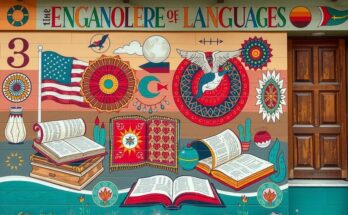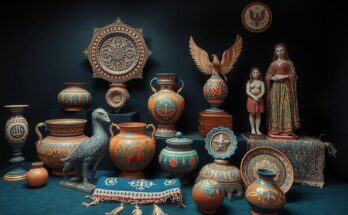On the inaugural International Day of Intangible Cultural Heritage, celebrated on October 17, 2024, a global panel illuminated the intersection of Artificial Intelligence (AI) and cultural traditions. With nearly 300 participants, the engaging webinar was co-moderated by Harriet Deacon from the University of Hull and Hanna Schreiber from the University of Warsaw, both showcasing the significance of AI in preserving living cultural elements.
The discussion began with an introduction to AI, emphasizing its relevance to safeguarding intangible cultural heritage. Experts showcased case studies illustrating the power of AI in language preservation, particularly emphasizing Morocco’s linguistic heritage. Their findings revealed how AI translations could successfully convey the essence of ancient proverbs, thereby enhancing global accessibility and appreciation of various cultures.
The panel further delved into the implications of AI technologies on Indigenous cultures, citing UNESCO’s 2023 Indigenous Populations Report. This pivotal document, focusing on Latin America and the Caribbean, underscored the necessity for AI to respect Indigenous rights and knowledge. Concerns surrounding data misuse and cultural biases were highlighted, along with ongoing legal protections for Indigenous knowledge in Australia, providing a pertinent Asia-Pacific perspective.
To harness the advantages of AI while minimizing negative impacts, experts examined ethical guidelines that encourage diverse data input to reduce bias in AI systems. Initiatives like the Cultural Intellectual Property Rights Initiative® (Cipri) were upliftingly presented, reflecting efforts to safeguard cultural heritage. Participants actively engaged in discussions throughout the webinar, signaling the urgency of the subject matter for stakeholders invested in the 2003 Convention and beyond.
The International Day of Intangible Cultural Heritage on October 17, 2024, featured a global webinar on AI’s impact on cultural preservation. Moderated by experts from the UK and Poland, the event highlighted AI’s role in language preservation and the need for ethical frameworks to protect Indigenous cultures. Engaging case studies and global perspectives on legislation showcased the urgent necessity of balancing technology with cultural respect.
This global panel underscored the transformative potential of AI in safeguarding intangible cultural heritage while addressing the inherent risks, particularly for Indigenous communities. The emphasis on ethical considerations, inclusivity, and diversified data sources highlighted the ongoing need for careful navigation in implementing AI technologies. By fostering these conversations and initiatives, stakeholders can ensure that the legacies of cultural heritage thrive amidst technological evolution, creating a harmonious blend of tradition and innovation.
The conversation explored the pivotal roles AI could play in preserving and enhancing intangible cultural heritage. As AI technology advances, its intersection with cultural preservation becomes increasingly crucial. This dialogue is essential for understanding how AI can help maintain cultural narratives while taking care to respect the nuances of different traditions and the rights of Indigenous populations. The fostering of an ethical framework for AI technologies can ensure that cultural diversity is preserved and celebrated in this digital age.
Original Source: ich.unesco.org



